Rep. Ilhan Omar is charting a new path in her third term
By Farnoush Amiri Associated Press
President Joe Biden was winding up for a speech at a Minnesota clean energy facility when he spotted a lawmaker in the crowd whom he wanted to recognize.
“I want to thank you for being here,” Biden said, gesturing toward Democratic Rep. Ilhan Omar during his recent visit. “You never stop working to level the playing field for everybody.”
For Omar, the quick flash of praise from Biden — who was neither her first nor second choice to be the party’s 2020 White House nominee — was more than just a courtesy shout-out during a presidential visit to her suburban Minneapolis district. It was a recognition of how far Omar has come after a rocky start to her political career that at times made her standing with Democrats appear tenuous.
As she settles into her third term, Omar is no longer defined by the “firsts” that accompanied her arrival in Congress: one of the first Muslim women in the House, the first refugee from Africa elected to the House, the first lawmaker to wear a hijab while on the House floor.

In interviews with nearly a dozen Democrats in the House and Senate, lawmakers portray Omar as a serious legislator who in the past four years has earned admiration for giving voice to marginalized groups often forgotten on Capitol Hill.
The best example of this came in early February when every single House Democrat voted against a GOP resolution to remove her from the House Foreign Affairs Committee over her past comments critical of Israel.
“I think we’ve been successful in making the Democratic caucus, Democratic Party, Democratic establishment to get to a place where they are able to see me fully, for all of the multiple identities I am a first for and not just to see and celebrate it but to defend it,” Omar told The Associated Press.
In the debate over her committee seat, many of Omar’s fellow Democrats, including those of Jewish descent, spoke out in the chamber about what they said was hypocrisy from the new Republican majority.
“I don’t need any of you to defend me against antisemitism,” said Rep. Jan Shakowsky, D-Ill. “My friend Ilhan Omar and I have worked together toward the values that I treasure as an American Jew and that she treasures as an American Islamic woman, the only one on the Foreign Affairs Committee.”
Democrats called it payback because they had used their majority in the last Congress to oust far-right GOP lawmakers from committees for their incendiary, violent remark s. But the emotionally charged floor debate over Omar was a departure from the bipartisan outrage she faced in her first year in office. At that time, Democrats were confronted by the reality that comes with diverse viewpoints when Omar — showing less deference to the party line — dragged the divisions over Israel into the open.
It began with social media posts in which Omar criticized pro-Israel lobbyist groups and questioned the loyalty of Jewish lawmakers who pushed back against her criticisms of the Israeli government.
APRIL 17-23,2023 Issue # 570 www.mshale.com THE AFRICAN COMMUNITY NEWSPAPER
Rep. Ilhan Omar, D-Minn., talks to reporters as she leaves the House chamber at the Capitol in Washington, Thursday, Feb. 2, 2023. In early February when every single House Democrat voted against a GOP resolution to remove Omar from the House Foreign Affairs Committee over her past comments critical of Israel. “I think we’ve been successful in making the Democratic caucus, Democratic Party, Democratic establishment to get to a place where they are able to see me fully, for all of the multiple identities I am a first for and not just to see and celebrate it but to defend it,” Omar told The Associated Press.
Photo: Jose Luis Magana/AP
See Omar on Pg. 2
Omar apologized for her comments at the time, both privately to her Jewish colleagues and publicly. She said what she was questioning was the influence game in Washington and voicing her concern that anything she said about Israel and its treatment of Palestinians would be construed as antisemitic.
In response, top Democrats began to draft a resolution that would have condemned antisemitism, with an early version even mentioning Omar by name. At the time, only a handful of Democrats inside and outside of Congress came to her defense.
Vermont Sen. Bernie Sanders, the highest-ranking progressive in Congress, said in April 2019 that Omar may “need to do a better job speaking to the Jewish community,” but that “it is not antisemitic to be critical of a rightwing government in Israel.”
Ben Rhodes, who was President Barack Obama’s deputy national security adviser, said that after meeting Omar early in her career, it was clear that she wanted to use her background to push for structural change in foreign policy.
“There are plenty of people in Congress that can represent the kind of established view of American foreign policy whether it’s on the Middle East or whether it’s on military policy,” Rhodes said. “There’s a desperate need for unconventional thinking and different perspectives, and that’s what she brings.”
The resolution that Democrats ended up introducing and passing in the spring of 2019 included condemnation of anti-Muslim bias but did not mention of Omar’s name. For the next sev-

eral years, the former state legislator focused on bringing attention to issues that affected immigrants and families both back in her district and across Minnesota. And she gained support from various factions of the party as a result.
“The more time I’ve spent with her the more I’ve come to appreciate her perspective, the more I’ve come to realize how important her voice is to represent not just our community in Minnesota, not just in our country but many around the world,” Rep. Dean Phillips, D-Minn., another Jewish member of Congress. “It’s not about agreeing. This building was not built for agreement. It was built to manage disagreement. And I’d like to think that she and I can be the perfect example of that.”
Omar began to move up the ranks in the Congressional Progressive Caucus — one of the largest ideological caucuses in the House. She become the vote counter for the caucus chair, Rep. Pramila Jayapal, D-Wash., in the last Congress as progressives helped pave the way for Biden’s agenda to pass the House and Senate.


In January, Omar was chosen by more than 100 members to serve as deputy caucus chair.
“She’s not gonna stop using her voice,” Jayapal said. “She’ll continue to use her voice on foreign affairs issues. Just kicking her off a committee is not going to silence her. She’s way too strong for that.”
Omar, who was born in Somalia, is now embarking on a new chapter “as a minority, in the minority,” helping Biden and the Democratic Party provide a split screen to Republican control by highlighting the implementation of several legislative achievements made in the past two years, including the

infrastructure law.
“Being taken off the committee is not a pleasant experience. But I think she’s gonna turn it into a real blessing,” said Rep. Jim Clyburn, D-S.C., who was an early supporter of Omar and is a member of the House Democratic leadership team.

Omar is also chairing a newly formed Africa policy working group, where she and more than a dozen House Democrats will focus on issues concerning the continent.
“We don’t agree on everything,” said Rep. Sara Jacobs, one of the group’s members. “But we share a similar worldview, especially when it comes to the African continent, where we’re both really focused on U.S. engagement, not leading with our military, but actually leading with diplomacy and centering our values on human rights and promoting good governance.”
While many voiced concerns that her removal from the House Foreign Affairs Committee would effectively silence her on foreign policy, Omar said Republicans badly miscalculated, given that she was assigned to the House Budget Committee as a replacement.
“This is why I joke about the fact that Republicans taking me off the Foreign Affairs Committee essentially meant that they were promoting me,” Omar said.
“Because we will have the opportunity not only to address investments in regards to our foreign policy with development, defense, and diplomacy, but we will also be able to have more of a say as part as the discussions move forward in regards to our own defense budget.”
- The African Community Newspaper www.mshale.com April 17-23, 2023 Issue 570 Mshale 2 SAFE EASY EFFECTIVE TAKE Care OF EACH OTHER. DON’T MISS THE COVID-19 VACCINE. FIND YOUR VACCINE AT TAKECAREHENNEPIN.ORG 202136_KL_HennepinCounty_Printad_Mshale_Hibo_4.875x7.125_RD1.pdf 1 5/13/21 2:10 PM GET TODAY PAST-DUE MORTGAGE PAYMENTS? Apply at HomeHelpMN.org or call 1-800-388-3226
Omar Continued from Pg. 1
President Joe Biden hugs Rep. Ilhan Omar, D-Minn., as he is greeted at Minneapolis−Saint Paul International Airport, Monday, April 3, 2023, in Minneapolis. Photo: Carolyn Kaster/AP
Guest Commentary by David W. Marshall
The threat toward Black prosecutors doing their jobs
The fact that power is meant to be shared and every voice is meant to be heard is the beauty of democracy. The failure of democracy is not the system itself, but the people who we put into the system. It takes a certain type of person to be elected as a public servant and yet possess the character needed to ensure that political power will be rightfully shared with “others.” It takes a special person who can be given the honor of representing the people without falling into the trap of abusing that honor for personal or political gain.
Republican Rep. Matt Bliss of Minnesota is not that type of person. During the debate on a spending bill in the Minnesota state legislature, Bliss complained that the bill “brings us closer to a democracy, which you know, that’s not a good thing.” The bill under debate deals with funding for state and local elections, but also includes a number of election reforms –among them instituting an automatic voter system, as well as granting 17-year-olds the ability to register to vote in upcoming elections if they will be 18 by Election Day. If or when Rep. Bliss runs for re-election, will his comments regarding democracy be the reason people vote for or against him?
Elections are no longer a simple choice between individuals holding liberal versus conservative ideas. Unfortunately, local, state, and federal races between the two major parties have become a choice between those who support democracy against those who oppose it. Despite not being re-elected as president, Donald Trump still commands the Republican Party. Under his seven years of “leadership,” the party has undeniably taken a detrimental approach to democracy. It is evident in the views held by Minnesota state lawmaker Matt Bliss. We saw it with the expulsion of Tennessee state representatives Justin Jones and Justin Pearson.
In an attempt to protect the former president and his views, district attorneys have now become political targets by GOP lawmakers in addition to being targets for violence by the MAGA movement. This is particularly true for three Black top prosecutors seeking to hold the former president accountable.
It doesn’t matter to GOP lawmakers how the MAGA movement chanted “Lock Her Up” concerning Hillary Clinton, but in regard to Trump, there is no willingness to accept the findings of the judicial process. In fact, members of the judicial process are attacked with petty acts of revenge and retaliation by way of proposed legislation and Congressional subpoenas by Republicans.
There is currently a bill under review by the Georgia state legislature that would create a state-run board with the power to investigate and oust district attorneys. It creates a means for state legislators to have more control over district attorneys when things don’t go their way.
The backdrop to this pending legislation is the Fulton County District Attorney Fani
Willis and her long-running investigation into Donald Trump’s effort to overturn the 2020 election. Willis is the first Black woman to lead Georgia’s largest district office, and it is hard to believe that such a state-run board will operate solely based on the will of the voters without race and political agendas becoming a factor. In response to Willis’ investigation, Trump has called her “racist” as well as a “local rogue” prosecutor who is incompetent and unable to do her job and has challenged her authority. Willis has said that she requires extensive personal security following death threats from Trump supporters.
New York Attorney General Letitia James and Manhattan District Attorney Alvin Bragg, both of whom are Black, received personal attacks from Trump in similar fashions. Bragg has received more than 1,000 phone calls and emails from Trump supporters making threats and racially charged comments.
Generally, prosecutors are among the most powerful figures in the courtroom. They are the people who will decide whether to bring charges, what charges to bring, whether to negotiate a plea bargain and what the terms of the plea will be. The government does not have the resources to try every case. Very few criminal cases will ever go to trial, therefore prosecutors wield tremendous power. Prosecutors are on the front line of justice. While they represent the government in criminal cases, it is meant for them to be immune from outside influences and pressures when making critical decisions involving their cases. It is not meant for them to be totally immune from criticism, especially when it calls for true justice.
Democracy depends on prosecutors properly using their power and discretion, even when faced with the hostility from a former president and his passionate supporters.
Legal experts are sounding the alarm that former president Donald Trump’s racially charged attacks and threats against Black prosecutors investigating him could create safety threats for Black prosecutors all over the country.
“The danger of this rhetoric is that it encourages bad actors to do certain things,” said Melba Pearson, a civil rights and criminal law attorney and the former president of the National Black Prosecutors Association. “This retort of racism specifically aimed at Black prosecutors is purposeful. This is not a brand-new tactic.”

Pearson added, “It’s just part of this bigger pattern of trying to attack the messenger and discredit the process to take away the culpability you face for whatever actions that you engaged in.”
David W. Marshall is founder of the faith-based organization, TRB: The Reconciled Body, and author of the book “God Bless Our Divided America.” He can be reached at http://www. davidwmarshallauthor.com.
- The African Community Newspaper www.mshale.com April 17-23, 2023 Issue 570 Mshale 3
Join the Mshale Text Club: Text AFRICA to 24587 or follow us onTwitter.com/Mshale Community News, updated daily on Mshale.com
© 1995-2023 Mshale Communications, Inc. Mshale – The African Community Newspaper Editorial & Corporate Office: 2 E Franklin Ave., Suite 1 Minneapolis, MN 55404 Mailing Address: P.O.BOX 80071, Minneapolis, MN 55408 Tel: 612-454-5648 Email: mshale@mshale.com www.mshale.com President & Publisher: Tom Gitaa Contributing Editor: Edwin Okong’o Staff Writers: Kari Mugo, Bethel Gessesse, Cynthia Simba, Panashe Matemba-Mutasa Contributing Writers: Susan Budig Design & Layout: Staff Photographers: Richard Ooga, Jasmine Webber, Bethel Gessesse Distribution: Bluebird Mshale is published weekly on Monday. It is available every Monday for free at most African stores , African restaurants and metro area county libraries. Mailed subscriptions are $60 per year. Memberships: Minnesota Multicultural Media Consortium (MMMC) , Pan African Business Alliance (PABA). The editor welcomes letters, opinion pieces and commentary on issues of interest to the African community in North America. Contributions must be typed and will be edited for clarity and space. Submissions can be mailed or submitted online at www.mshale.com Mshale Text Club: Text AFRICA to 24587 to join
Explainer: Why Sudan’s conflict matters to the rest of the world
By Associated Press
Fighting in Sudan between forces loyal to two top generals has put that nation at risk of collapse and could have consequences far beyond its borders.
Both sides have tens of thousands of fighters, foreign backers, mineral riches and other resources that could insulate them from sanctions. It’s a recipe for the kind of prolonged conflict that has devastated other countries in the Middle East and Africa, from Lebanon and Syria to Libya and Ethiopia.
The fighting, which began as Sudan attempted to transition to democracy, already has killed hundreds of people and left millions trapped in urban areas, sheltering from gunfire, explosions and looters.
A look at what is happening and the impact it could have outside Sudan.
WHO IS FIGHTING?
Gen. Abdel Fattah Burhan, head of the armed forces, and Gen. Mohammed Hamdan Dagalo, the leader of a paramilitary group known as the Rapid Support Forces that grew out of Darfur’s notorious Janjaweed militias, are each seeking to seize control of Sudan. It comes two years after they jointly carried out a military coup and derailed a transition to democracy that had begun after protesters in 2019 helped force the ouster of longtime autocrat Omar al-Bashir. In recent months, negotiations were underway for a return to the democratic transition.

The victor of the latest fighting is likely to be Sudan’s next president, with the loser facing exile, arrest or death. A long-running civil war or partition of the Arab and African country into rival fiefdoms are also possible.
Alex De Waal, a Sudan expert at Tufts University, wrote in a memo to colleagues this week that the conflict should be seen as “the first round of a civil war.”
It uneasily shares its waters with regional heavyweights Egypt and Ethiopia. Egypt relies on the Nile to support its population of over 100 million, and Ethiopia is working on a massive upstream dam that has alarmed both Cairo and Khartoum.
Egypt has close ties to Sudan’s military, which it sees as an ally against Ethiopia. Cairo has reached out to both sides in Sudan to press for a cease-fire but is unlikely to stand by if the military faces defeat.
Sudan borders five additional countries: Libya, Chad, the Central African Republic, Eritrea and South Sudan, which seceded in 2011 and took 75% of Khartoum’s oil resources with it. Nearly all are mired in their own internal conflicts, with various rebel groups operating along the porous borders.
as they have sought to project power across the region.
The United Arab Emirates, a rising military power that has expanded its presence across the Middle East and East Africa, has close ties to the Rapid Support Forces, which sent thousands of fighters to aid the UAE and Saudi Arabia in their war against Iran-backed Houthi rebels in Yemen.
Russia, meanwhile, has long harbored plans to build a naval base capable of hosting up to 300 troops and four ships in Port Sudan, on a crucial Red Sea trading route for energy shipments to Europe.
The Wagner Group, a Russian mercenary outfit with close ties to the Kremlin, has made inroads across Africa in recent years and has been operating in Sudan since 2017. The United State and the European Union have imposed sanctions on two Wagner-linked gold mining firms in Sudan accused of smuggling.
WHAT ROLE DO WESTERN COUNTRIES PLAY?
Sudan became an international pariah when it hosted Osama bin Laden and other militants in the 1990s, when al-Bashir had empowered a hard-line Islamist government.
CAN EXTERNAL POWERS DO ANYTHING TO STOP THE FIGHTING?
Sudan’s economic woes would seem to provide an opening for Western nations to use economic sanctions to pressure both sides to stand down.
But in Sudan, as in other resourcerich African nations, armed groups have long enriched themselves through the shadowy trade in rare minerals and other natural resources.
Dagalo, a one-time camel herder from Darfur, has vast livestock holdings and gold mining operations. He’s also believed to have been well-paid by Gulf countries for the RSF’s service in Yemen battling Iran-aligned rebels.
The military controls much of the economy, and can also count on businessmen in Khartoum and along the banks of the Nile who grew rich during al-Bashir’s long rule and who view the RSF as crude warriors from the hinterlands.
“Control over political funds will be no less decisive than the battlefield,” De Waal said. “(The military) will want to take control of gold mines and smuggling routes. The RSF will want to interrupt major transport arteries including the road from Port Sudan to Khartoum.”
“Unless it is swiftly ended, the conflict will become a multi-level game with regional and some international actors pursuing their interests, using money, arms supplies and possibly their own troops or proxies,” he wrote.
WHAT DOES THE FIGHING MEAN FOR SUDAN’S NEIGHBORS?
Sudan is Africa’s third-largest country by area and straddles the Nile River.
“What happens in Sudan will not stay in Sudan,” said Alan Boswell of the International Crisis Group. “Chad and South Sudan look most immediately at risk of potential spillover. But the longer (the fighting) drags on the more likely it is we see major external intervention.”
WHAT EXTERNAL POWERS ARE INTERESTED IN SUDAN?

Arab Gulf countries have looked to the Horn of Africa in recent years
Its isolation deepened over the conflict in the western Darfur region in the 2000s, when Sudanese forces and the Janjaweed were accused of carrying out atrocities while suppressing a local rebellion. The International Criminal Court eventually charged al-Bashir with genocide.
The U.S. removed Sudan from its list of state sponsors of terrorism after the government in Khartoum agreed to forge ties with Israel in 2020.
But billions of dollars in loans and aid were put on hold after the 2021 military coup. That, along with the war in Ukraine and global inflation, sent the economy into free-fall.
Meanwhile, the sheer number of would-be mediators — including the U.S., the U.N., the European Union, Egypt, Gulf countries, the African Union and the eight-nation eastern Africa bloc known as IGAD — could render any peace efforts more complicated than the war itself.
“The external mediators risk becoming a traffic jam with no policeman,” De Waal said.
- The African Community Newspaper www.mshale.com April 17-23, 2023 Issue 570 Mshale 4
Associated Press writers Jon Gambrell in Dubai, United Arab Emirates, Rodney Muhumuza in Kampala, Uganda, and Joseph Krauss in Ottawa, Ontario, contributed.
Sudanese protesters take part in a rally against military rule on the anniversary of previous popular uprisings, in Khartoum, Sudan, Thursday, April 6, 2023 . The demonstrations came on the day that the country’s military leaders, who came to power in a coup in October 2021, were meant to sign an agreement with pro-democracy groups that would lead to the appointment of a civilian government. Many in the country’s protest movement see the deal as favoring military powers.
Photo: Marwan Ali/AP
Gen. Mohamed Hamdan Dagalo, left, and Gen Abdel Fattah al-Burhan. Photo: AP File
ACER is seeking $3 million from legislature for retail incubator in Brooklyn Center
By Margaret Stevens Session Daily
With the Brooklyn Center Walmart slated to close later this month, a local economic development and advocacy group seeks state aid to help fill the hole left behind.

Sponsored by Rep. Samantha Vang (DFL-Brooklyn Center), HF3175 would appropriate $3 million for African Career, Education and Resources, Inc. to purchase a strip mall on Shingle Creek Parkway in Brooklyn Center for a retail incubator.
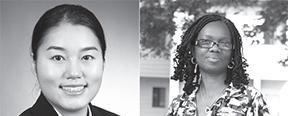
The bill was heard Monday on an informational basis by the House Capital Investment Committee. No action was taken.
“We want to invest in our community at a time when others are disinvesting,” said ACER Executive Director Nelima Sitati Munene.
The aim is to provide affordable space for microbusinesses to get established and grow. The 400 or so one-, two- or three-person operations serve a critical role in the community, but it’s a niche that hasn’t been well served, Munene said.Business owners often cannot afford rent in regular retail space and try to make a go of it in office buildings and other commercial spaces ill-suited for shoppers.
ACER aims to not only provide an affordable home for those types of small businesses but offer
technical assistance and wraparound services, such as bookkeeping.
The benefit would be multifold, Munene said, growing wealth in the community through successful businesses, expanding employment opportunities and increasing access to desired goods. Retailers could fill food gaps, especially ethnic food gaps.
According to ACER, the northwest suburbs are home to an estimated 4,500 immigrants, mostly from Liberia, Somalia and Nigeria.

- The African Community Newspaper www.mshale.com April 17-23, 2023 Issue 570 Mshale 5
This Walmart at 1200 Shingle Creek Crossing in Brooklyn Center will close for good on April 21, 2023.
Photo: Tom Gitaa/Mshale
Rep. Samantha Vang, left, and ACER executive director Nelima Sitati Munene
Photos: Courtesy MN Legislature & ACER
Unite to Fuel Change
We live in a world where divisions and poverty affect everyone but when we unite as changemakers we can create a community where all people thrive.
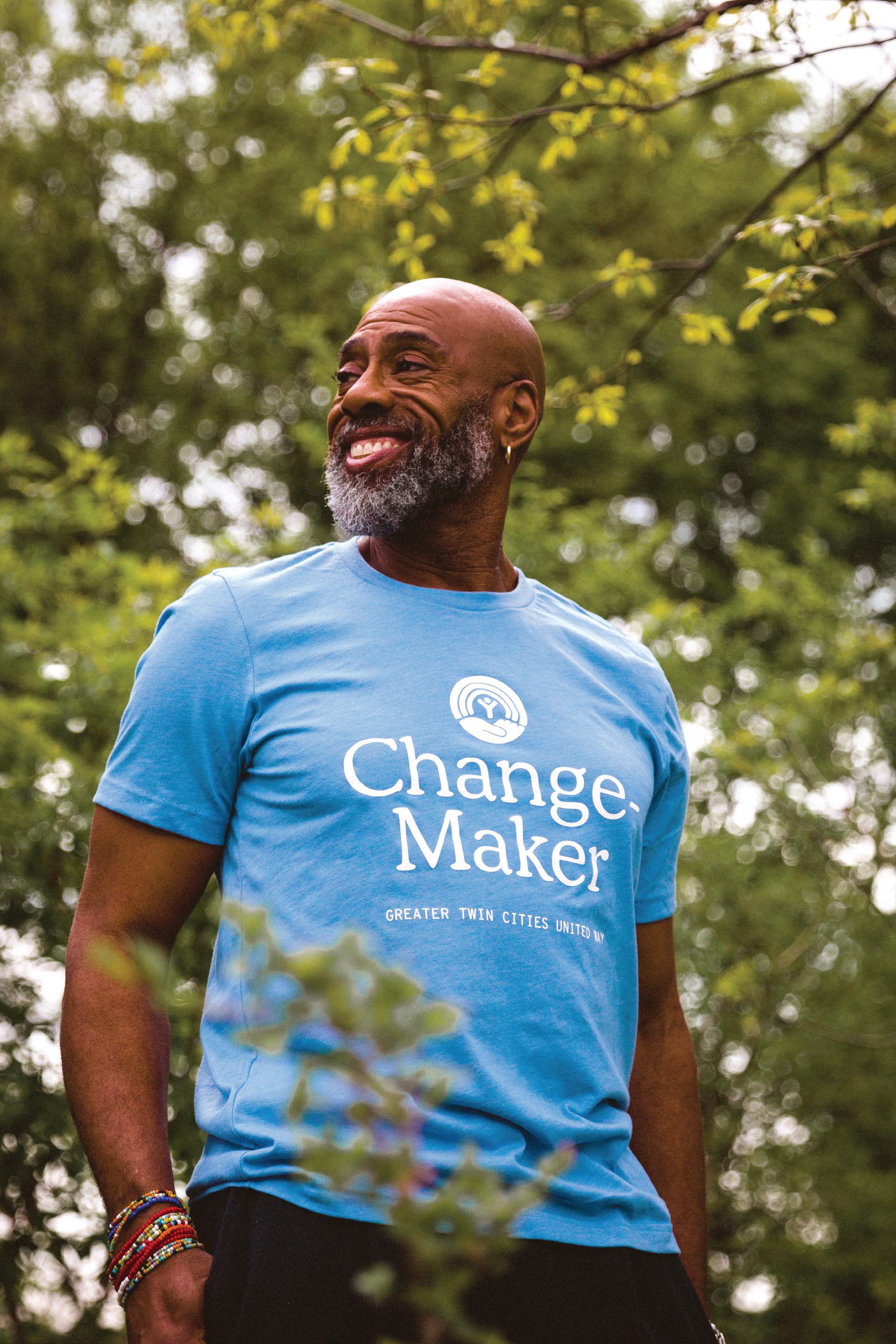
- The African Community Newspaper www.mshale.com April 17-23, 2023 Issue 570 Mshale 6
JOIN THE MOVEMENT VISIT GTCUW.ORG TO LEARN MORE
The Kanneh-Masons siblings to perform together for the first time in America
By Susan Budig Mshale Contributing Writer

In celebration of its 140th year, Schubert Club, a non-profit arts organization that promotes the art of music, will present a special Anniversary concert by The Kanneh-Masons on Sunday, May 7, 2023, at the Ordway Music Theater, St. Paul.
The Kanneh-Mason family brings their sevenfold talents to the stage for a matinee performance. This concert marks the first time all seven siblings from Nottingham, England, will perform together in the United States. Isata Kanneh-Mason performed at the Ordway in March 2022 following her brother Sheku Kanneh-Mason who made his Minnesota debut in December 2019.
The Kanneh-Masons are seven brothers and sisters ranging in age from 26 to 13 years old, Isata will turn 27 in May, all of whom play either violin, piano or cello.

All seven were born in Britain as was their father, Stuart Mason, a business executive. Their mother, Dr. Kadiatu Kanneh, a former university lecturer, was born in Sierra Leone, emigrating to the UK as a young child.
Mshale spoke to Jeneba, an accomplished pianist and cellist already at 20 years old. As a sibling with both older and younger siblings, she lands squarely in the middle of the line-up, number five of seven. She reflected on her similar position of being born and raised in Nottingham, England, but also having family scattered in both Africa and the West Indies, her father’s side from Antigua.
“I’d say that we’ve grown up here [in the UK] and that kind of thing. I wouldn’t say that we’re ambassadors [of Africa], but…I think it’s wonderful that we’re representing people that are African, Caribbean, British people in Classical music, which is quite rare, I think.”
So rare, in fact, that her brother, Sheku, four years older, was the first-ever Black musician to win the coveted BBC Young Musician, a competition running since 1978.
Collectively, they have won many prizes and awards and appeared in numerous television shows; the five eldest performed at the Bafta awards in 2018 and all seven appeared in the December 2019 Royal Variety Show.
In May 2021 they received the Global Award for Best Classical Artist. Sheku also played his cello at the wedding of Prince Harry and Meghan Markle.
Jeneba spoke of her maternal side of the family. “We’ve never been to Sierra Leone as a family, but my mother’s been back a few times and she’s told us many stories about the country. We have lots of family there. We strongly identify with Sierra Leone and we firmly identify with our African roots.”
Annual trips to Antigua and hearing the pan-Caribbean music helped influence some of the music they perform. Jeneba said, “We’ve arranged a few Bob Marley songs for our group of seven players, but,” she confessed, “mostly it’s Classical music.”
“But in terms of what we listen to, we listen to a lot of…a huge variety of music, like my parents would play lots of Black music around the house when we were younger.”
Their renown grows exponentially as one by one, each of the seven siblings takes off in solo careers as professional musicians while also continuing as a tight-knit septet.
Jeneba confirmed their progression individually as well as a unit. “I definitely want to perform music for the rest of my life. I love playing with my family, but I also really enjoy doing solo concerts,” she said,
“Having that balance is really helpful to me because having my identity as well as my identity within the family…it’s great to have that support network. We all play together and we go off and do our own thing as well.”
Tickets for their May 7th 3 pm show are available on the Schubert Club website at www.schubert.org
- The African Community Newspaper www.mshale.com April 17-23, 2023 Issue 570 Mshale 7
Stearns Bank gives African Development Center $10M for underbanked community lending
By Tom Gitaa Mshale
African Development Center (ADC) just got a $10 million boost from St. Cloud-based Stearns Bank to expand financing in underbanked communities in central Minnesota.
immigrant businesses. It also provides workshops and training to those businesses to ensure their success.
ADC will be responsible for identifying and disbursing the loans to qualified borrowers. The organization will also receive additional funding from the bank to assist with the cost of launching the program. The amount of additional funding for the launch was not disclosed.
In a news release on Thursday, Ms. Kelly Skalicky, CEO and president of Stearns Bank explained the scope of her bank’s investment in ADC’s mission.

“We’re committed to the mission of ADC and pledge to continue expanding our financial and resource support as a partner to increase financial access and empowerment in our communities.” Ms. Skalicky said. “Creating dynamic, forward-thinking partnerships like ours with ADC multiplies the opportunities for so many more in our communities and benefits us all.”
African Development Center (ADC) CEO Mr. Nasibu Sareva, second left, and ADC CFO Ms. Felicia Ravelomanantsoa, second right, receive the Small Business Administration (SBA) Minnesota District Director Award at the SBA Minnesota Lenders Conference on Thursday, September 15, 2022 in Brooklyn Park. St. Cloud-based Stearns Bank announced on Thursday, April 13, 2023 that it will give $10 million to ADC to expand lending to the underbanked.

The bank is providing the $10 million to ADC so that it can work on providing more access to capital and banking services. ADC is a Minneapolisbased community development financial institution (CDFI) with offices in St. Cloud, Wilmar and Rochester that does microlending to African

Independent Community Bankers of America (ICBA), a trade group for the nation’s small banks, last year named Stearns Bank among its top ten performers out of its 5,000 members.
Last summer, ADC and Stearns Bank embarked on a new partnership to expand the bank’s community development programs through building collaborations with other non-profits and community-driven organizations across
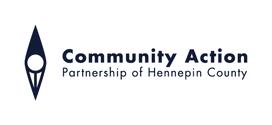
Minnesota and the two other states where the bank has locations, Arizona and Florida. Thursday’s announcement of the $10 million funding builds on that partnership, the news release said.
Mr. Nasibu Sareva, ADC’s CEO, said Stearns Bank’s latest move on their partnership is a clear demonstration that corporate social
responsibility goes beyond managing, reducing or avoiding risk but also includes “creating opportunities.”
“The additional resources that Stearns Bank is providing will play an important role in helping us expand the valuable services we’re providing to African communities in our state,” Mr. Sareva said.
- The African Community Newspaper www.mshale.com April 17-23, 2023 Issue 570 Mshale 8
Photo: ADC Facebook
Ms. Kelly Skalicky, Stearns Bank CEO.
Photo: Courtesy Stearns Bank
For neurodiverse Muslims, Ramadan presents extra challenges
By Silma Suba Religion News Service

Days often pass in a blur for Sumejja Pasanbegovic.
Hours go by and she is unable to physically move or get herself to run an errand, or pray, or read the Quran — all the things she had planned to do when she woke up. Sometimes, if she forgets the verses she recited a few seconds before, she cries on the prayer mat out of frustration, redoing the prayer repeatedly. She frequently cannot recall what she did for most of the day, or where the time went.
Pasanbegovic suffers from ADHD — attention-deficit/hyperactivity disorder, a neurodiverse condition that can affect an individual’s perception of time and ability to focus. It can manifest as obsessive compulsions, brain fog, rapid mood changes and other symptoms. It is one syndrome that falls under the loose term “neurodiversity,” which simply describes a variation in experience of the world, in school, at work or through social relationships. Autism spectrum disorders and dyspraxia are other common disorders commonly described this way.
For millions of Muslims around the world, neurodiversity can affect their ability to practice their faith, especially during the holy month of Ramadan, a time of intensive prayer, alone and in crowded and bustling rooms at the mosque.
“I absolutely face challenges practicing my faith due to my ADHD — particularly with prayer, keeping up with religious obligations and being mindful during worship,” said Pasanbegovic, who works at an Islamic elementary school in Toronto. “It’s a source of great frustration, guilt and shame. … Ramadan is about worship and taking advantage of the month to get closer to Allah, so that’s where my struggles happen.”
Mubeena Mirza, a clinical social worker, works with people with obsessive-compulsive disorder and anxiety disorders at Beach Cities CBT, a therapy center in Redondo Beach, California. She has seen an uptick of compulsions for neurodiverse patients during Ramadan, citing the anticipation of the excitement of the holy month, when Muslims often stay up all night praying, believing that blessings are increased tenfold during this time.
“While it’s normal to worry about fasting for long hours, or being too tired to pray,” said Mirza, “the worries are heightened for people with mental health issues who may not be able to fast regularly or pray all night. This often causes a lot of guilt.
“People think if they ask God for forgiveness their illness will be alleviated, but that’s not true,” said Mirza. “Some people’s brains work differently, and we need to give them the tools they need to function better. I see a lot of guilt in my Muslim patients and guilt can fuel mental illness, especially OCD and anxiety.”
The inability to focus on prayers or perform rituals at prescribed times can also lead some people to doubt their faith.
Muslim patients often worry, Mirza said, about whether they performed their prayers or ablutions correctly, and they ask her what their intrusive thoughts during prayers say about them. “We call
it religious scrupulosity, where people doubt their faith due to their illness, and wonder if they’re practicing their faith correctly,” said Mirza.
“Their obsessions are doubts, and the compulsive behaviors that follow are ways to cope with their anxiety around their faith,” added Mirza. People experiencing these doubts worry they have committed some form of blasphemy and will spend hours praying for forgiveness or repeatedly washing their hands.
Mirza teaches these patients about radical acceptance and radical self-compassion. When a patient expresses intrusive negative thoughts, Mirza asks the person: What would you do if your friend or loved one was finding it hard to fast during Ramadan? Would you show them compassion? Why is it that you’ve so much compassion outwardly but it is hard for you show it inward?
“I try to remind them that from a religious perspective, God is forgiving, and that God knows you have mental illness,” said Mirza. “When they say it’s difficult to fast every day or stay up all night to pray, I remind them of God’s mercy, and encourage them to double down on the skills and tools they’re learning in therapy to take care of themselves.”
For some patients, navigating religious observances with mental illness can be an isolating journey. When Pasanbegovic was diagnosed with ADHD last year, she searched “ADHD Muslims” on social media platforms but didn’t find the online community or resources she was looking for. Instead, she says she found posts on Islamic seminars claiming to cure ADHD and misinformation about various disorders.
“I remember feeling defeated, and very upset. I couldn’t find a community of people who understood my struggles, and I quickly grew quite tired of it and decided to try creating it myself,” said Pasanbegovic.
In December, she created an Instagram account called Neurodivergent Muslims, which has amassed more than 1,300 followers. She posts regularly about living with OCD, often using bionic reading — text formatted in a way that highlights the first few letters of a word. Though there is little research available on the method, some studies show that people with ADHD perform better with reading tasks with bionic reading.
“I get so many messages from people thanking me, telling me, in tears, that they’re so relieved that this page exists, that they feel seen and heard, that they’re so happy they’re not alone, and that it’s already helped them immensely,” said Pasanbegovic. “The response has been overwhelming and while it warms my heart, it also breaks it because I can sense how alone they’ve been and how they’ve been longing for a community, but I’m so happy I can provide that for them.”
Though research shows an estimated 15% to 20% of the world experiences some form of neurodivergence, there is still a lot of stigma associated with mental health that can keep patients from seeking out professional help.
Katie O’Dunne, an interfaith chaplain and founder of Faith and Mental Health integrative services, believes that having
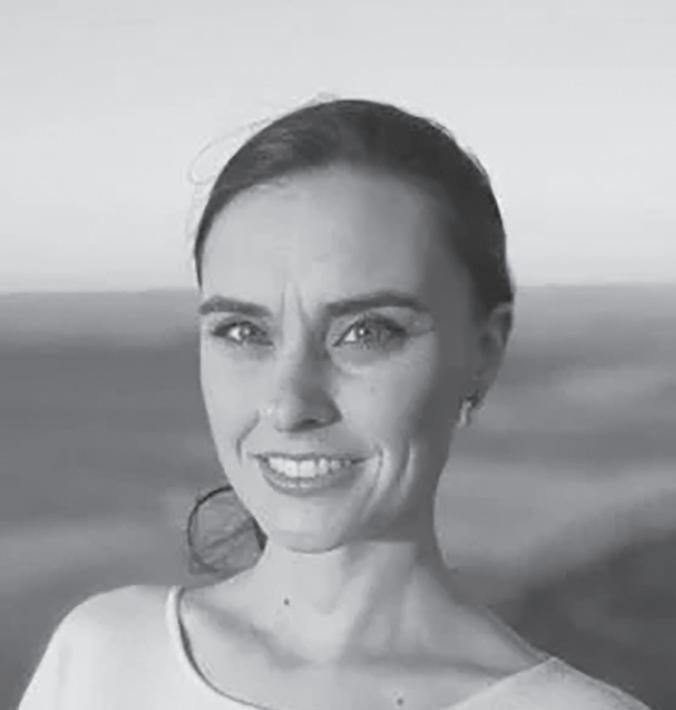
a community for support, both online and offline, can help patients learn to destigmatize their illness. She hosts Faith and OCD roundtable, a discussion with faith leaders, clinicians and individuals with OCD from various faith traditions, and leads a special interest group for people of faith to discuss their struggles.
“I think community is so significant, and it’s something that OCD very much tries to take away,” said O’Dunne. “Anything that we’re doing as a part of OCD relates us to fear, urgency, guilt, shame. I deeply
toward have to do with joy, meaning, connection, and finding peace and love in community. So, I think moving towards that as opposed to what OCD is telling us is what we need to do.”
In addition to finding community, O’Dunne believes education and awareness about neurodiversity and its impact on faith are important. She encourages community and faith leaders to learn how mental illness such as OCD can manifest in diverse faith traditions so they can raise awareness in their communities.
In partnership with the International OCD Foundation, O’Dunne created a Faith and OCD Resource Center, which offers patients, as well as faith leaders and medical providers, resources and a platform to learn more about OCD and how it shows up in diverse faith traditions.
“We tend to be so hard on ourselves and we tend to assume that we are not enough, or that we are imperfect,” said O’Dunne. “I always remind folks that God created you, and you’re imperfectly perfect and God loves you. There is no shame at all in what you’re experiencing, you’re not alone, there is so much hope for getting better, and you deserve to get better.”
- The African Community Newspaper www.mshale.com April 17-23, 2023 Issue 570 Mshale 9 Religion
believe that the things God is leading us
Mubeena Mirza.
Photo via Beach Cities CBT
Bassekou Kouyate & Ngoni Ba will bring Mali to the Cedar this weekend
By Susan Budig Mshale Contributing Writer
Bassekou Kouyate turns the traditional on its head, drawing worldwide music from his historically Malian and West African instruments. He and his band, Ngoni Ba, which includes family members such as his spouse the lead vocalist, Amy Sacko, and one of his sons, his nephew, and his little brother take the stage at the Cedar Cultural Center on Earth Day, April 22nd.
While tradition runs deep, starting in his childhood when he took up the ngoni, the 57-year-old griot seeks to expand. Kouyate spoke to Mshale through a translator. He said, “I have a different style from my father (Mustapha Kouyaté) and grandfather. I have a different mentality.”
But rather than swap out the age-old instrument for a more current banjo or even a steelstring guitar, Kouyate remains committed to the traditional ngoni.
He said, “The ngoni instrument has existed since before Jesus Christ was born. It’s the oldest instrument in Mali, in Western Africa, it’s been
played for many centuries. I wanted to play it my own way. I wanted to make it known everywhere, give it more value. I want to play for everybody.”
But where his father played traditional music that was played for kings, great warriors, and marabouts, Bassekou Kouyate said, “I like to be open to world music, jazz, blues…I want to play for everybody. My father never did that.”
Another departure from playing how it has always been played is that
Bassekou Kouyate stands as he strums. “Traditionally people sit to play ngoni,” he said, “but it’s not good, not for me. I like to communicate with my audience, I want to be in front of the stage, standing up, and be in contact with the public.”
Most significantly, Bassekou Kouyate wants to buck the current mindset of many in his country and by using traditional musical instruments and through the study of Malian music, improve his country’s future.

With growing intensity, he said, “In Mali, we have a problem with extreme Islam: Wahhabism. They want to destroy traditional music, they want all the power, all the money. They want to stop music and any message that is anti-islamist.”
Kouyate wants to counteract the Wahbabist ideas. “We singers, we can convey a message, convince people. We can tell people what is wrong, we can sing to tell people what is happening. They (the islamists) don’t want [us to do that].
Kouyate’s medium to accomplish his goals is education. He is building a music school in his home village Garana,
160 Km from Bamako, Mali. Children study from the age of 5 to about 20 or 25 years in Mali. Kouyate explained, “They can sleep there, stay there, learn how to play an instrument, how to make instruments and how to sell instruments. We will have music lessons, ngoni, balafon, guitar, and also dance lessons, and dyeing, too, all the cultural life.”
“The Wahhabists,” said Kouyate, “are going to teach children directly. They want to destroy everything, all the photos, your father’s photos, your grand-father’s. They want to take away everything and start from zero, teach children.”
But the school’s not finished yet. “I need more time, more money. So I have to do a lot more concerts,” said Kouyate.
Tickets to Bassekou Kouyate & Ngoni Ba 8 pm show are available on the Cedar website at www.thecedar.org.
Darnell and Denna, adopted 16-year-old Isaiah

- The African Community Newspaper www.mshale.com April 17-23, 2023 Issue 570 Mshale 10
&
Art
Entertainment
His first football season, Isaiah told us, ‘Wear a jersey with my name on it. I want everyone to know you’re here for me.’
YOU CAN’T IMAGINE THE
LEARN ABOUT ADOPTING A TEEN ADOPT US KIDS .ORG
REWARD
Bassekou Kouyate and his band Ngoni Ba are set to perform at the Cedar in Minneapolis on Saturday, April 22, 2023
Mshale Text Club: Text AFRICA to 24587 to join
Photo: Bassekou Kouyate Facebook






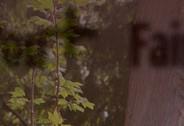

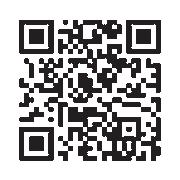
- The African Community Newspaper www.mshale.com April 17-23, 2023 Issue 570 Mshale 11 You Fair Housing A Better Community The solution to housing discrimination starts with you. If you have been trying to buy or rent a house or apartment and you believe your rights have been violated, contact HUD or your local fair housing center. The Fair Housing Act prohibits housing discrimination because of race, color, sex, religion, national origin, familial status or disability. + Fair Housing Is Your Right. Use It. Visit www.hud.gov/fairhousing or call the HUD Hotline 1-800-669-9777 (English/Español) 1-800-927-9275 (TTY) A public service message from the U.S. Department of Housing and Urban Development in partnership with the National Fair Housing Alliance. The federal Fair Housing Act prohibits discrimination because of race, color, religion, national origin, sex, familial status or disability. For more information, visit www.hud.gov/fairhousing. SCAN HERE FOR MORE INFO


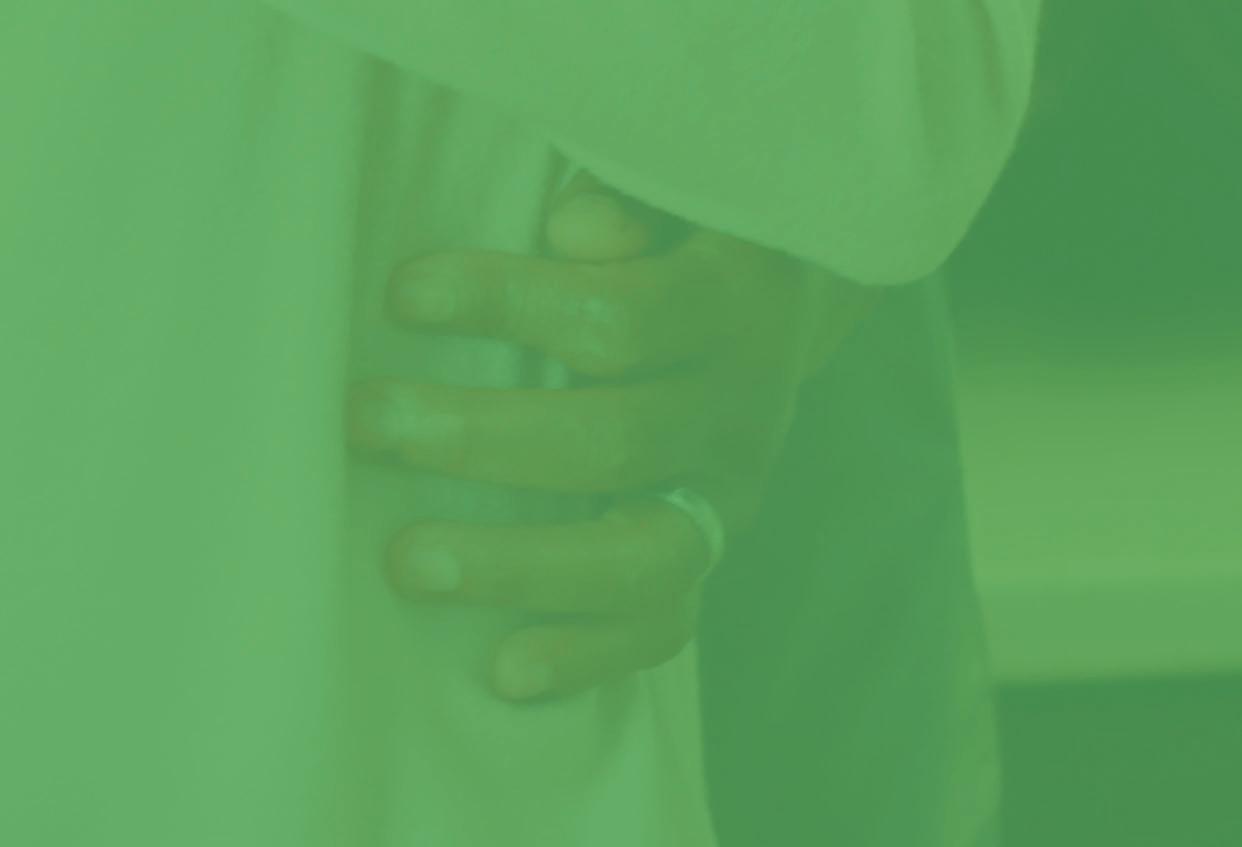

- The African Community Newspaper www.mshale.com April 17-23, 2023 Issue 570 Mshale 12 “I want our retirement savings to be as strong as our partnership.” Visit AceYourRetirement.org for: • 3-minute online chat with a digital retirement coach • Free personalized roadmap based on your retirement goals • Free tips to start boosting your retirement savings now


































